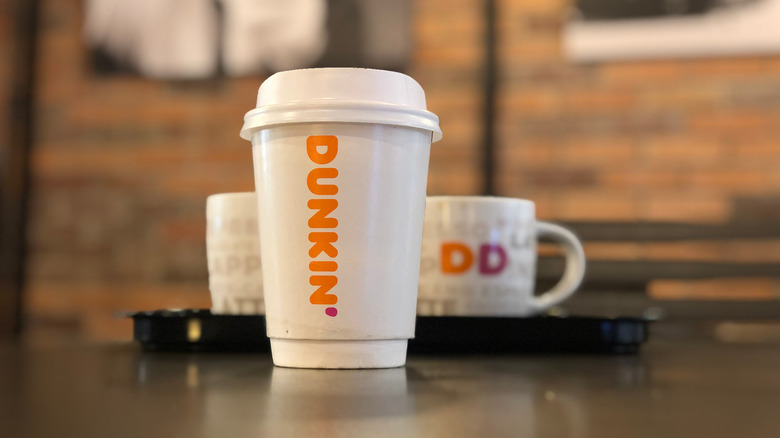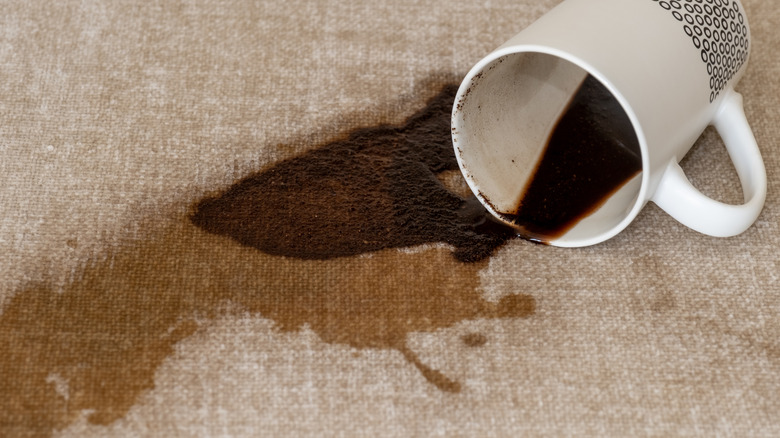Why Dunkin' Could Win This Hot Coffee Lawsuit, According To A Lawyer
This story has been updated to include comment from Dunkin'.
In early April, Dunkin' was sued over a 2021 hot coffee spill in New Jersey that allegedly led to severe physical consequences, including third-degree burns. The lawsuit is one of a number of legal suits filed against fast-food chains for hot coffee spills, the most famous being Stella Liebeck's 1994 suit against McDonald's.
You might think that customers who sue large-scale restaurant chains have a decent shot at winning their case. But personal injury lawsuits are rarely so cut-and-dry, as Business Insider explains.
To get an expert opinion about this type of personal injury lawsuit, Mashed spoke with Jeb Butler, J.D., a trial attorney at Butler Law Firm in Atlanta, Georgia. Butler explained why hot spillage lawsuits are particularly "tough to win," which could bode in Dunkin's favor. "It could go either way," Butler says of the case against Dunkin'. A rep for Dunkin' told Mashed that the chain "can't comment on current or pending legal matters involving our franchisees."
Hot spillage lawsuits are often seen as 'frivolous'
"Not all hot coffee cases are the same," says attorney Jeb Butler, who adds that some of these personal injury claims really are "nonsense." But others have real merit, even if the media narrative would suggest otherwise.
"There are cases that no self-respecting plaintiff's lawyer would take," Butler says, using an example of a case where someone is walking while holding a to-go coffee and spills it on themselves. But that's a much different scenario than, say, someone handing you a hot coffee at a drive-thru and spilling it on your lap, causing serious burn damage.
Of course, third-degree burns are nothing to laugh about. But somehow, personal injury lawsuits involving hot coffee spills have come to be seen as less than serious in the public eye. "If you ask people, 'Name a frivolous lawsuit,' 'McDonald's coffee' is the first words out of their mouth," Butler says.
Still, Butler adds that courts and juries "will try really hard to get a case right." And while we don't know key details about the New Jersey case, such as what temperature the coffee was served at, it's possible that plaintiffs Evan Arlington and Stephanie Arlington-Macias could still win the suit.

